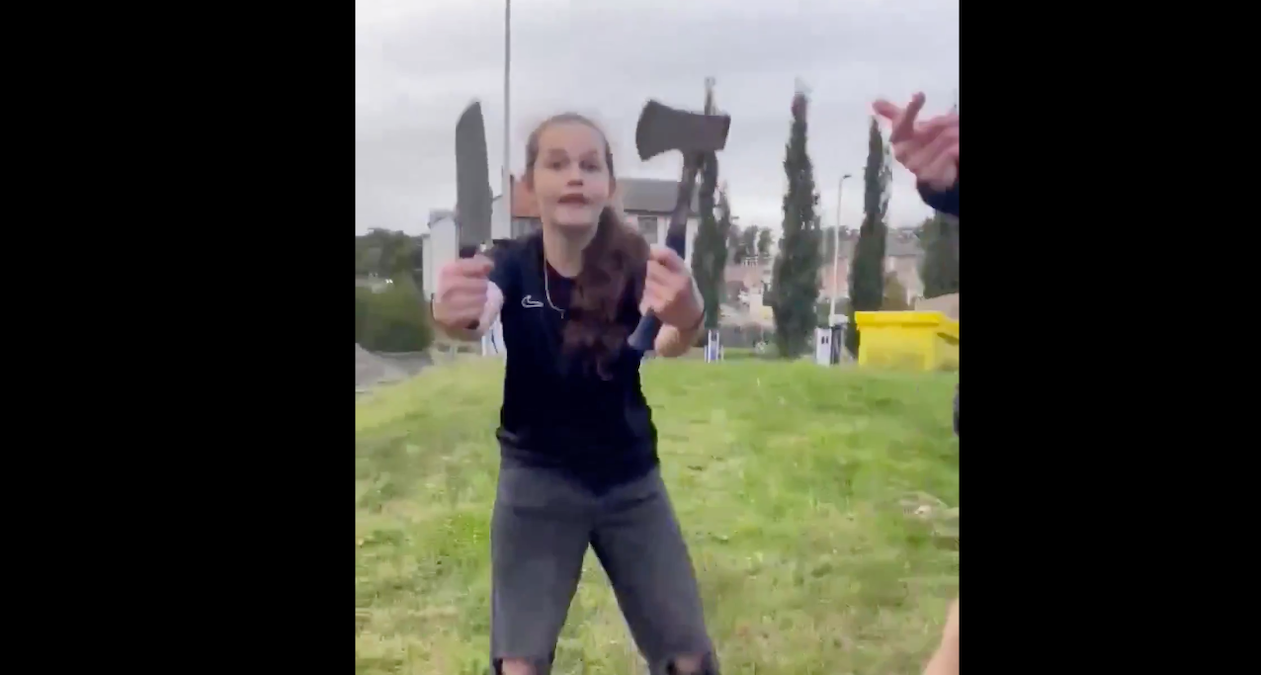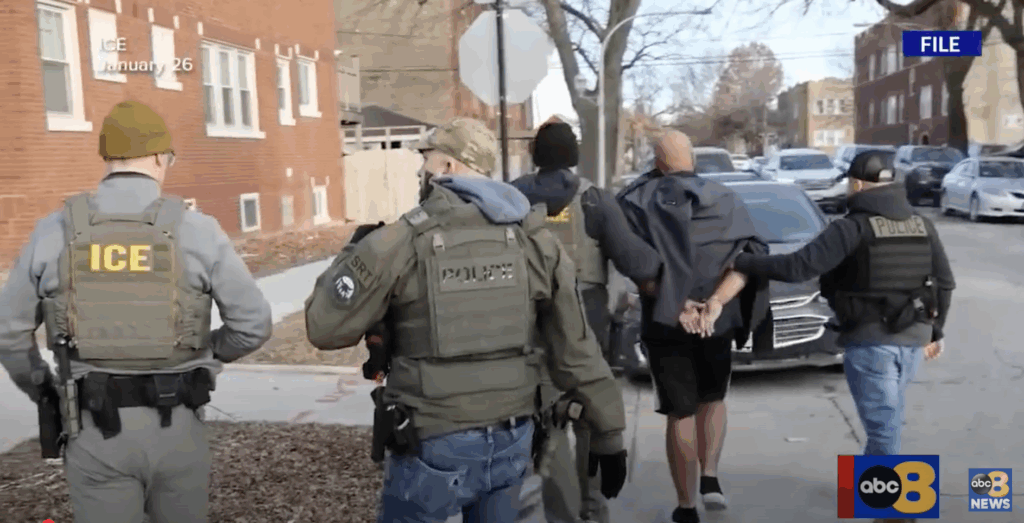A recent incident in Dundee, Scotland, has sparked renewed fears of civil unrest in Britain. A video circulating on social media shows a young girl brandishing a knife and a hatchet to fend off a man who was allegedly harassing her and her sister. The police arrested the girl for possession of a bladed weapon but did not detain the man involved, raising questions about the justice system’s response to such incidents.
This event is part of a broader narrative of societal tensions in Britain, particularly regarding issues of immigration and public safety. Critics argue that the government has failed to protect its citizens, particularly vulnerable young girls, from harassment and violence. The ongoing inquiry into sexual exploitation by Pakistani gangs has highlighted systemic failures in addressing these issues. Rupert Lowe, a Member of Parliament and chair of the Rape Gang Inquiry, stated, “The inquiry has identified 85 local authorities where gang-based sexual exploitation of children is taking place or has historically occurred.”
The inquiry’s findings indicate a troubling pattern of exploitation, predominantly targeting working-class girls in economically disadvantaged areas. This has led to accusations that the ruling class is neglecting the safety of these communities, allowing such abuses to continue unchecked. Critics contend that the government has prioritized political correctness over the protection of its citizens.
The social fabric of Britain has been under strain for years, with many citizens expressing frustration over mass immigration policies. Some believe that these policies have contributed to a sense of alienation among native Britons. Louise Perry, a commentator, recently discussed the potential for civil conflict in Britain, citing a loss of social cohesion and rising distrust among communities.
“Civil war is likely to dominate the military and strategic affairs of the West in the coming years,” said David Betz, a Professor of War in the Modern World at King’s College London. He emphasized that the conditions for civil unrest are becoming increasingly apparent, particularly in Britain.
In response to these growing tensions, movements advocating for national symbols, such as the St. George’s Cross flag, have emerged. Supporters view this as a means of asserting national identity and solidarity against perceived government neglect. However, these displays have been met with backlash from authorities, who label them as “racist” and have taken action to remove them.
The situation remains fluid, with many fearing that a flashpoint could ignite widespread unrest. Incidents similar to the recent confrontation in Dundee or other violent acts could serve as catalysts for larger conflicts. As tensions escalate, the potential for civil unrest looms larger in the public consciousness.
As the inquiry into sexual exploitation continues and public dissatisfaction grows, the British government faces mounting pressure to address these issues effectively. The stakes are high, and many are watching closely to see how the situation unfolds in the coming months.
READ Trump Administration Seeks Supreme Court Relief in USAID Funding Dispute



